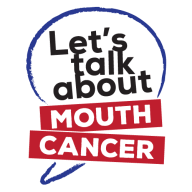9 out 10 Mouth Cancers are preventable!
It is important to remember that anyone can develop Mouth Cancer and you should be checking your own mouth regularly, but some cancers are can be prevented.
There is evidence that people who have any of the following habits or infections are at an increased risk of developing Mouth Cancer:
- Smoke (around 65% of Mouth Cancers are associated with smoking)
- Drink alcohol (around 30% of Mouth Cancers are associated with alcohol intake)
- Chew smokeless tobacco/Betel quid/Areca nut products
- A poor diet low in fruit and veg (around 56% of Mouth Cancers are associated with a poor diet)
- Poor oral hygiene
- Are infected with the Human Papilloma Virus
By leading a healthy lifestyle can help reduce your risk of developing Mouth Cancer.
If you smoke, then thinking about stopping is good first step to reducing your risk. There are loads of services available to help you stop if you want to, and your GP or local community pharmacist can help a lot. Find out more about NHS stop smoking services here: NHS Choices – Stop Smoking.
If you drink alcohol frequently then you increase you risk of developing Mouth Cancer. The Chief Medical Officer recommends that we should limit our alcohol intake each week to less than 14 units. We shouldn’t drink all 14 units in one go either…that is binge drinking! By drinking less alcohol (or none at all) you can reduce your risk. Drinkaware have loads of ideas on how to understand alcohol units and how to reduce your alcohol intake. Have a look at the Drinkaware website by clicking here.
Having a diet high in fruit and veg can help prevent some Mouth Cancers. Eating a good range of these foods is important. We don’t know exactly which fruit or vegetables help to protect us from cancer, so eating a variety ensures you get all the good stuff from as many sources as possible. The NHS have some great advice on managing your diet here: NHS Choices – Food and Diet.
Keeping your mouth clean and healthy can help prevent Mouth Cancer. By brushing and flossing daily, seeing your dentistry regularly and carrying out a self exam or mouth check once a week you will be aware of any changes or sores in your mouth. Knowing what your mouth looks like when it is healthy is important so you know when something changes or no longer looks right. See your Dentist or your Doctor if you do notice a change!

